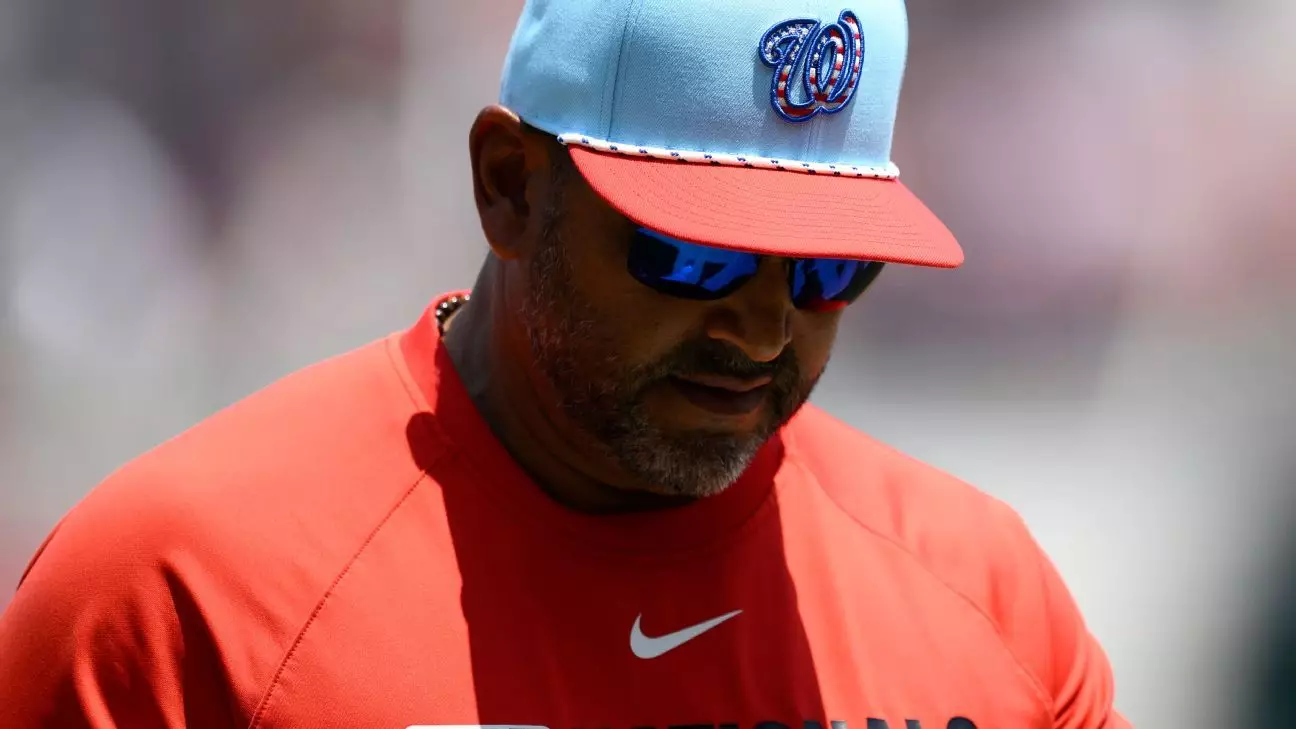The End of an Era: Rizzo and Martinez’s Firing Signals a Turning Point
The recent dismissal of Mike Rizzo and Davey Martinez from the Washington Nationals marks not just a coaching change, but a symbolic turning point in the franchise’s ongoing struggle to reclaim its former glory. While there’s been widespread relief among fans longing for fresh blood and a new direction, the decision also exposes a deeper flaw—an inability to sustain success over multiple seasons, despite initial promises and past triumphs. Rizzo, celebrated for guiding the team to its first and only World Series title in 2019, and Martinez, a respected baseball mind, together represent the last remnants of a high point that seems increasingly distant. Their departure underscores a painful truth: the Nationals have stagnated, unable to translate brief flashes of excellence into sustained competitiveness.
What stings most is that this upheaval comes after multiple years of underachievement. Despite their historic victory, Washington has failed to elevate beyond mediocrity, languishing at the bottom of their division regularly. The removal of these long-time figures signals perhaps an impatience or a recognition that past success isn’t enough to save a franchise that has fallen behind in talent development, strategic planning, and organizational cohesion. It’s a wake-up call that previous loyalties and historical achievements now matter little without forward-looking innovation—a push for a bold new vision that the current management has apparently failed to provide.
Financial Underperformance and a Lack of Strategic Vision
One of the critical issues plaguing the Nationals isn’t just their on-field ineptitude but also their slow and reluctant approach to building a competitive roster. Despite promising prospects like James Wood and MacKenzie Gore, the team’s younger core has been underutilized and underprotected. For a franchise that could have used aggressive investment to accelerate its rebuild, the Nationals opted for a cautious, cost-effective strategy. This has resulted in a roster that remains painfully inexperienced and lacks the veteran presence necessary to guide young stars through the rigors of a long season.
Their recent winter was notably silent as far as spending goes. Instead of seizing the opportunity to sign key free agents or fortify their roster with impactful veterans, the team made only marginal moves. Such a conservative approach reflects an organizational hesitation—possibly a shortsighted belief that patience alone would suffice. This miscalculation underscores a broader issue: leadership’s failure to understand that rebuilding isn’t just about stockpiling young talent, but also about creating a sustainable environment where that talent can flourish. Simply counting on prospects without smart strategic investments won’t cut it in the fiercely competitive landscape of modern baseball.
The Future of the Franchise: Is a New Approach Enough?
Transitioning to new management—both on and off the field—raises legitimate questions about the franchise’s true intentions. The appointment of Mike DeBartolo as interim GM may be a temporary fix rather than a clear statement of a comprehensive strategic overhaul. It’s a cautious first step, but not necessarily a guarantee that the club is ready to match its ambitions with real investment and innovation.
The team’s recent struggles, notably an 11-game losing streak and a string of games where they’ve scored one or no runs, reveal systemic issues that go beyond coaching. There seems to be a disconnect between organizational leadership and the realities of a competitive baseball environment. The Nationals need more than a change in personnel; they require a fundamental re-evaluation of how they value player development, team building, and financial commitment. The current management’s reluctance to spend and their conservative approach may offer stability, but stability alone isn’t enough; it’s stagnation.
Ultimately, the Nationals’ latest move reflects a broader truth about modern MLB franchises with historic success: successful rebuilding requires vision, resource allocation, and an understanding that patience must be paired with strategic investment. Without these elements, even a talented roster of young players can remain mired in mediocrity for far too long, blunting their potential and frustrating the passionate fanbase searching for signs of genuine progress. The question remains whether this organizational chaos will be the catalyst for meaningful change or just another chapter in a declining story.

